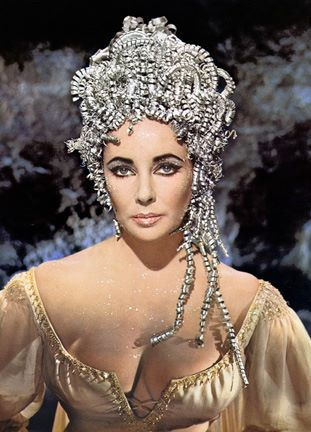|
 내가 노화에 대해 생각하게 된 계기는 한 잡지사 기자가 “보기 좋게 나이를 먹어간 분으로 누구를 꼽으시겠습니까?”라는 질문을 던지면서 시작됐다. 당시 나는 윈스턴 처칠부터 버트런드 러셀, 클린트 이스트우드, 멜 토메, 콜린 파월, 빌 브래들리, 그레이스 호퍼, 케이 그레이엄 등 몇 명의 이름을 읊었다. 그러고 나서 이들이 지닌 공통점이 무엇일까 궁금증이 들었다. 이렇게 해서 나름대로 찾은 네 가지 공통점은 다음과 같다. 내가 노화에 대해 생각하게 된 계기는 한 잡지사 기자가 “보기 좋게 나이를 먹어간 분으로 누구를 꼽으시겠습니까?”라는 질문을 던지면서 시작됐다. 당시 나는 윈스턴 처칠부터 버트런드 러셀, 클린트 이스트우드, 멜 토메, 콜린 파월, 빌 브래들리, 그레이스 호퍼, 케이 그레이엄 등 몇 명의 이름을 읊었다. 그러고 나서 이들이 지닌 공통점이 무엇일까 궁금증이 들었다. 이렇게 해서 나름대로 찾은 네 가지 공통점은 다음과 같다.
1. 그들은 살아가기를 잠시도 멈추지 않는다
처칠을 떠올려보라. 그는 66세가 돼서야 제대로 된 커리어를 시작했다고 할 수 있다. 어떤 이들은 그 이전까지 처칠의 삶이 일종의 무단횡단과 같았다고 표현하기도 한다. 나이를 먹으면서 철학에 대한 사유의 폭이 더욱 넓어진 버트런드 러셀, 나이에 상관없이 계속 왕성하게 활동하면서 한 번도 주춤하지 않고 자신의 길을 걸어간 멜 토메와 토니 베넷은 또 어떤가? 이 사람들은 자신의 인생에서 멈춰서지 않고 계속해서 달려나갔다.
2. 그들은 과거의 성과, 혹은 은퇴에 연연하지 않는다
사실 우리 모두가 전환을 겪는다는 점을 생각하면, 은퇴보다 더 적합한 단어는 ‘전환(Transitioning)’ 이라고 할 수 있다. 내 생각에 진정한 힘은 A라는 위치에서 B로, 즉 현재와 다른 어디론가 옮겨갈 수 있는 능력이다. 위의 사람들은 자기 삶에서 언제나 전환을 시도했다. 그들은 과거의 업적이나 은퇴에 대해 많은 이야기를 늘어놓지 않았다. 그들은 자기 삶을 언제나 재구성하고 재배치, 혹은 재창조해나갔다.
예컨대 콜린 파월은 ROTC를 갓 졸업해 독일 풀다(Fulda) 지역으로 임관된 소위였지만, 30년이 흐른 뒤 독일 주둔 미군사령관이 됐고 국무장관의 자리에까지 올랐다. 현재 그는 저자이자 연사, 그리고 기업가로 활동하고 있다. 이후 그가 어디에 도전할지 알 수 없는 일이지만 그에 대한 이야기를 앞으로도 많이 듣게 될 것이다. 리더는 뒤를 돌아보거나 과거의 성과에 연연하지 않고 끊임없는 재구성과 재배치, 혹은 재창조에 노력을 기울인다.
3. 인생의 어느 시점이 되면 자신을 증명하기보다 자신을 표현하기 시작한다
자신을 증명하는 것과 자신을 표현하는 것 사이에는 심오한 차이가 있다. 뉴저지 상원의원 빌 브래들리를 예로 들어보자. 그는 1992년 크리스틴 토드 휘트먼에게 거의 패할 뻔했을 때, 자신의 연설이 서서히 변색되면서 청중의 기분을 맞추기 위한 말을 하고 있다는 것을 깨달았다. 자신의 의견을 표현하는 대신 사람들의 지지를 통해 자신을 입증해 보이기 위해 말이다.
그때 그는 프린스턴 대학에서 농구를 하던 시절이 떠올랐다고 했다. “당시에도 팬들을 의식하며 경기를 할 때는 팀의 승리를 위해 최선을 다할 때에 비해 형편없는 경기를 하곤 했다.” 뉴욕 닉스에서의 말년에 그는 벤치를 지키는 일이 잦았다. “당시의 마지막 2년은 내 죽음을 옆에서 참관하는 것 같은 기분이었다.” 브래들리의 이야기는 자신을 입증하기보다 자신을 표현해야 한다는 교훈을 일깨워줬다.
4. 그들은 자기 일과 인생의 전환에서 성공을 거둔다
자기 삶과 일에서 성공을 거두지 못한 사람들은 인생의 어떤 전환에도 잘 적응하지 못한다. 그런 이들에게 전환은 서서히 찾아드는 죽음과 같은 것이라고 할 수 있다. 탁월한 리더들에 대해 연구하면서 나는 이들에게서 발견되는 다음의 5가지 자질이 성공적인 전환, 그리고 성공적인 ‘은퇴’에 필요하다는 사실을 깨닫게 됐다.

성공적인 전환을 일군 리더들에게서 발견되는 5가지 자질은 다음과 같다.
자질 1 : 그들에게는 강한 목표의식, 변화를 위한 열정, 뭔가를 하려는 의지와 확신이 있다.
이건 모든 리더에게 해당되는 사실이었다. 언젠가 마이클 아이즈너(Michael Eisner, 월트 디즈니사 전 CEO)와 그의 목표에 대해 이야기를 나눈 적이 있었는데 그는 이렇게 말했다. “내게 목표가 있는지는 모르겠지만, 분명한 견해(POV, Point of View)는 갖고 있습니다. 새로운 프로젝트나 영화에 관한 중대 결정을 내리는 회의에 참석한 임원진들을 보면, 그날 이기는 사람은 뚜렷한 POV를 갖고 회의에 임한 사람이더군요. 회사에서 분명한 POV는 IQ 80만큼의 가치가 있습니다.”
한편 잭 웰치는 GE의 회장직을 맡으면서 이렇게 말했다. “제게는 언제나 조직을 혁신시키고 싶다는 바람이 있었습니다.” 다시 강조하지만 분명한 목표의식이 중요하다. 허먼 밀러사의 전 CEO인 맥스 디 프리(Max De Pree)는 ‘영적 프로젝트’로서의 비전 창출을 강조한 바 있다. 인생의 목표를 갖는 영적 프로젝트를 통해 우리는 죽음까지도 초월할 수 있다.
자질 2 : 그들은 신뢰에 바탕을 둔 깊이 있는 인간관계를 맺고 유지한다.
이들은 인간관계에서 꾸준하게 남을 배려하고 진심으로 사람들을 대한다. 삶의 목표, 그리고 깊이 있고 친밀한 인간관계는 인생의 성공적 전환을 이루기 위한 두 가지 중요한 비결이다.
자질 3 : 그들은 주변 사람들에게 희망을 전달한다.
그들은 현실에 대해 긍정적인 시야, 다시 말해 비현실적이라 할 정도의 ‘우리는 할 수 있다’ ‘나는 할 수 있어’라는 가치관을 갖고 있다. 내가 아는 한 리더는 수술이 불가능한 뇌종양이 발견돼 앞으로 3년밖에 살 수 없다는 판정을 받았다. 그런 상황에서도 긍정적인 생각과 희망을 놓지 않았던 그는 15년을 더 일한 후에 은퇴했다.
레이건 대통령은 어떤가. 암살 시도가 있은 직후 그의 지지율은 사상 최고인 90%까지 치솟았다. 하지만 그로부터 1년 후 그의 지지율은 30%로 추락했다. 이때 레이건은 측근에게 이렇게 농담을 던졌다고 한다. “걱정 말게. 밖에 나가 다시 한 번 총을 맞아보지 뭐.”
자질 4 : 그들은 일과 권력, 가족, 그리고 업무외 활동의 균형을 맞춘다.
그들은 자신의 모든 가치를 직위에 묶어놓지 않는다. 그건 위험한 일이다. 신시내티 대학의 내 선임자는 그 학교에서 20년간 근무했다. 학생들이 농성을 벌이면서 던진 돌에 본관 창문이 깨졌을 때 그는 자기 피부가 찢어지는 듯한 아픔을 느꼈다. 그가 느끼기에는 자기 자신에 대한 학생들의 인신공격이나 다름없었던 것이다. 은퇴를 받아들이기가 쉽지 않았던 그는 은퇴 1년 후에 세상을 떠났다. 내 친구가 <워싱턴 포스트>지에서 은퇴했을 때, 그는 자신의 심경을 이렇게 표현했다. “그 신문을 내 분신처럼 생각하며 살았기 때문에 내 정체성이 사라진 것 같은 느낌이 들었다네.” 그래서 은퇴 전 삶과 은퇴 후 삶의 균형을 유지해야 한다.
자질 5 : 그들은 행동 지향적이다.
 그들은 무모하지는 않지만 위험을 감수하고 행동할 줄 아는 사람들이다. 그들은 모험과 위험, 미래의 희망을 사랑한다. 나는 J. 폴 게티의 인생에 깊은 감명을 받았는데, 그가 꼽은 세 가지 성공의 규칙은 다음과 같다. 일찍 일어나기, 열심히 일하기, 그리고 석유 찾기(게티는 미국의 대표적인 석유 재벌이다). 내가 가장 좋아하는 위대한 철학자 웨인 그레츠키(Wayne Gretzky)는 이렇게 말했다. “발포하지 않는 총알은 100% 목표물을 맞출 수 없다.” 이것이야말로 은퇴 후 성공적인 전환을 위해 기억해야 할 사항이다. 그들은 무모하지는 않지만 위험을 감수하고 행동할 줄 아는 사람들이다. 그들은 모험과 위험, 미래의 희망을 사랑한다. 나는 J. 폴 게티의 인생에 깊은 감명을 받았는데, 그가 꼽은 세 가지 성공의 규칙은 다음과 같다. 일찍 일어나기, 열심히 일하기, 그리고 석유 찾기(게티는 미국의 대표적인 석유 재벌이다). 내가 가장 좋아하는 위대한 철학자 웨인 그레츠키(Wayne Gretzky)는 이렇게 말했다. “발포하지 않는 총알은 100% 목표물을 맞출 수 없다.” 이것이야말로 은퇴 후 성공적인 전환을 위해 기억해야 할 사항이다.
|
|
Warren Bennis
Professor of business administration at USC
About 12 years ago, in 1995, after turning 70, I reflected on retirement-even wrote an article and gave a speech on the subject. Today, I feel even more passionate about this topic, as many leaders of the generation behind me approach retirement and face options and decisions. In today's “70 is the new 50” world, the word retirement has a fairly negative connotation. My American Heritage dictionary confirms why. It states, “Despite the upbeat books about retirement, many people do not find it to be a pleasant prospect.” The etymology of the word retire hints why. The source is the old French word retirer: the prefix “re” meaning back and the verb “tirer” to draw out, withdraw, take back, or endure. The first English use (1553) refers to a military force that withdraws and retreats. The source of tirer comes from the old French martir or in English “martyr,” since martyrs had to endure the torture of being stretched to the point of dislocating their bones. Aside from the etymology, I'm not pleased with the euphemisms for retired people-senior or seasoned citizens. I've had to work through my resistance to retirement before I could address this subject. You may think that it's arrogant of me to talk about a topic so new to my thinking. When I use the word arrogant, it reminds me of when I started my studies of leadership 20 years ago. I consulted many people, including an old friend who still teaches at the Harvard Business School. I told him I wanted to spend the next 10 or 15 years identifying the basic characteristics of exemplary, outstanding, excellent leaders. My friend scoffed at me and said, “Look, the only thing we can ever say about leadership is that it's like pornography. You can't describe it or define it, but you know it when you see it.” He said. “I think it's arrogant of you to think you're going to do that.” When he used the word arrogant to describe me, I reminded him of the Harvard University professor's prayer. “Dear Lord, please deliver us from the terrible sin of intellectual arrogance, which for your information means ” Having just reached 70, I wondered, maybe it's denial. Is it the Grateful Dead who have a line in a song, “Denial ain't just a river in Egypt?” Gratefully, I was jolted out of my denial when I attended a conference in Monterey, and somebody came up to me and said, “Didn't you used to be Warren Bennis?”
Four Signs of Aging Well
My reflection on aging was prompted by a question I was asked by a magazine editor: “Who do you most respect for aging well?” I rattled off several names: Winston Churchill, Bertrand Russell, Clint Eastwood, Mel Torme, Colin Powell, Bill Bradley, Grace Hopper and Kay Graham. I then began thinking, What do they all have in common? I came up with four things:
1. They never stop living. Think about Churchill, who really didn't get started on his career until he was 66. It was said about Churchill that he jaywalked his way through life before then. Or Bertrand Russell, who as he aged, took greater risks in writing about philosophy, or Mel Torme and Tony Bennett, who keep singing publicly and keep cresting, never coasting. These people never stop. They keep going.
2. They never think about past accomplishments - or retirement. In fact, a better word is transitioning, since we're all in transition. For me, power is the capacity to move from position A to B, to go on to something else. These people are always in transition. They don't talk much about retirement, past accomplishments, or what they've done. They are always redesigning, recomposing, and reinventing their lives. For example, Colin Powell was a Second Lieutenant at the Fulda Gap in Germany, a recent graduate of ROTC, and 30 years later he was the commanding General of the American Army, U.S. forces in Germany, and then he went to the National Security Council. Now he's an author, speaker, and entrepreneur. Who knows what he'll be doing next, but we'll be hearing a lot more about him. Leaders are never looking back, never thinking too much about past accomplishments, but always redesigning, recomposing, and reinventing.
3. They stop trying to prove themselves at some point in their lives and start expressing themselves. There's a profound difference between having to prove yourself and instead using your energy to express yourself. For example, consider Bill Bradley, the Senator from New Jersey. When he was almost defeated by Christine Todd Whitman in 1992, he realized that he was beginning to shade his speeches and spin his remarks to please his audience: to seek approval without really expressing himself, only trying to prove himself. He said it reminded him of when he played basketball at Princeton: “Even then, when I was playing for the fans, I wasn't nearly as effective as when I was playing to do the best I could for the team.” In his last years with the Knicks, he sat on the bench. He said, “Those last two years were like participating in my own death.” Bradley gave me the inspiration to think about expressing myself versus proving myself.
4. They succeed in their career and life transitions. People who haven't been successful in their lives and careers, don't adjust well to any transition. And to them and to me, it's simply death on the installment plan. My studies on outstanding leaders made me realize that all five characteristics that these leaders manifest in their work would be true of successful transitions, or successful “retirement.”
Five Traits for Life Transitions
Here are the five characteristics of leaders who excel at transitions: First, they have a strong sense of purpose-a passion, conviction, or sense of wanting to do something important to make a difference. That's true of every leader. I remember talking with Michael Eisner about his purposes. He said, “I don't know if I have a purpose, but I have a strong point of view (POV).” “He said, As I watch my staff at meetings wherein we make major decisions on new projects and movies, the person who wins the day is the person with a strong POV. Here, a strong POV is worth 80 IQ points.” When Jack Welch took on a new job at GE, he said, “I always want to revolutionize the place.” Again, a strong sense of purpose. Max De Pree, retired CEO of Herman Miller, talked about creating a vision as a “spiritual project.” Our purposes in life, our spiritual projects, are a way of tran-scending death.
2. They develop and sustain deep and trusting relationships. They seem to be constant, caring, and authentic with other people. Life purpose and strong, intimate human relationships constitute two of the major secrets of successful transitioning.
3. They are purveyors of hope. They have positive illusions about reality-an almost unreal sense of “We can do it” and “I can do it.” one leader was diagnosed as having an inoperable brain tumor and given less than three years to live. Through his optimism and hope, he retired 15 years later. Then there's President Reagan. Shortly after the attempted assassination on his life, his approval ratings skyrocketed to 90 percent, virtually the highest on record. A year later, his poll ratings plummeted to 30 percent. Reagan told his staff: “Don't worry. I'll just go out there and try to get shot again.”
4. They balance work, power, and family or outside activities. They don't tie up all of their self-esteem on their position. That's a danger. My predecessor at the University of Cincinnati was there for 20 years. During the student riots, when a rock came through a window in the Administration building, it was as if his skin was broken. It was a personal attack on him. Retirement wasn't easy for him; and a year after he retired, he died. When a friend of mine retired from the Washington Post, he said, “I identified so much with that newspaper, I now I feel shorn of my identity.” So maintain balance.
5. They have a bias toward action. They are people who take risks, who while not reckless, take action. They love adventure, risk, and promise. For example, I love to reflect on the life of J. Paul Getty and his three rules for success: get up early, work hard, and find oil. My favorite management philosopher, the great one, Wayne Gretzky, once said, “You miss 100 percent of the shots you don't take.” That's what successful transitioning is all about. |
























![]()
 To afford cup of coffee at ease!
To afford cup of coffee at ease!






 선체는 황금빛이요, 바람을 받아 크게 부풀어 오른 돛은 가장 값비싼 색깔인 자주색이었으며 갑판 중앙에는 금실로 수놓은 장막이 좌우로 열려 있고 그 아래 옥좌에 사랑의 여신 비너스로 분장한 클레오파트라가 앉았다. 노예들은 은으로 만든 노를 저으며 피리와 하프 가락에 맞추어 춤을 추고 배에서는 형용할 수 없는 향기가 바람을 타고 진동했다. 이 화려한 첫 만남에 안토니우스는 그만 혼을 뺏기고 말았다.
선체는 황금빛이요, 바람을 받아 크게 부풀어 오른 돛은 가장 값비싼 색깔인 자주색이었으며 갑판 중앙에는 금실로 수놓은 장막이 좌우로 열려 있고 그 아래 옥좌에 사랑의 여신 비너스로 분장한 클레오파트라가 앉았다. 노예들은 은으로 만든 노를 저으며 피리와 하프 가락에 맞추어 춤을 추고 배에서는 형용할 수 없는 향기가 바람을 타고 진동했다. 이 화려한 첫 만남에 안토니우스는 그만 혼을 뺏기고 말았다. 








